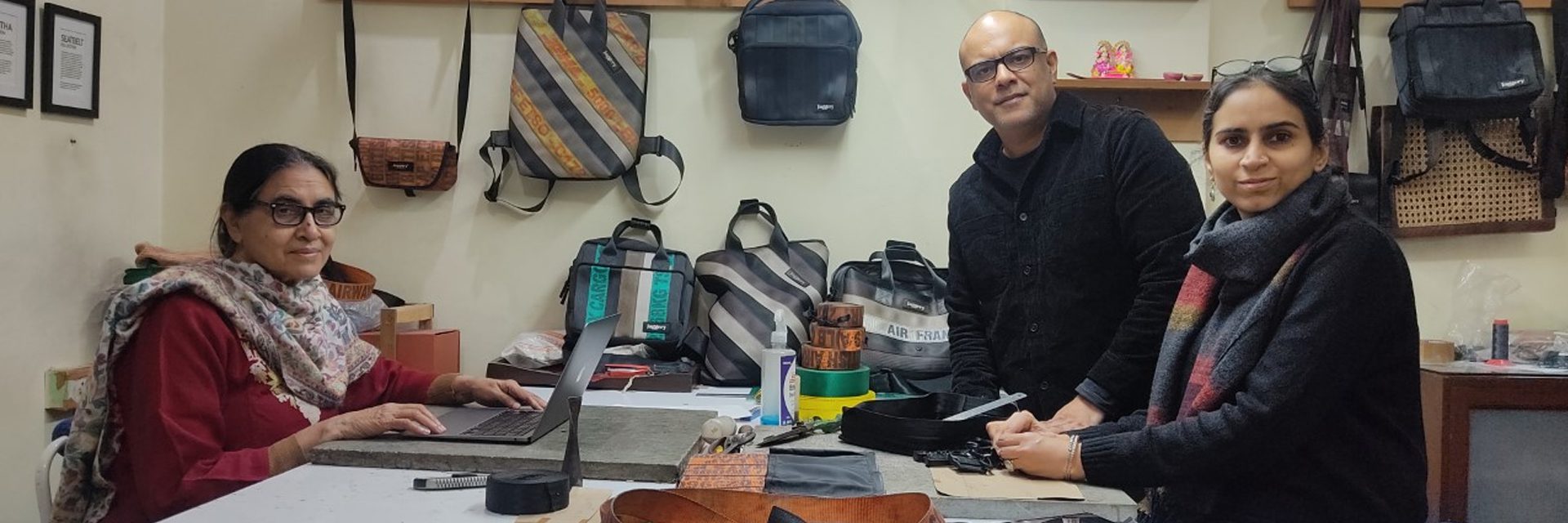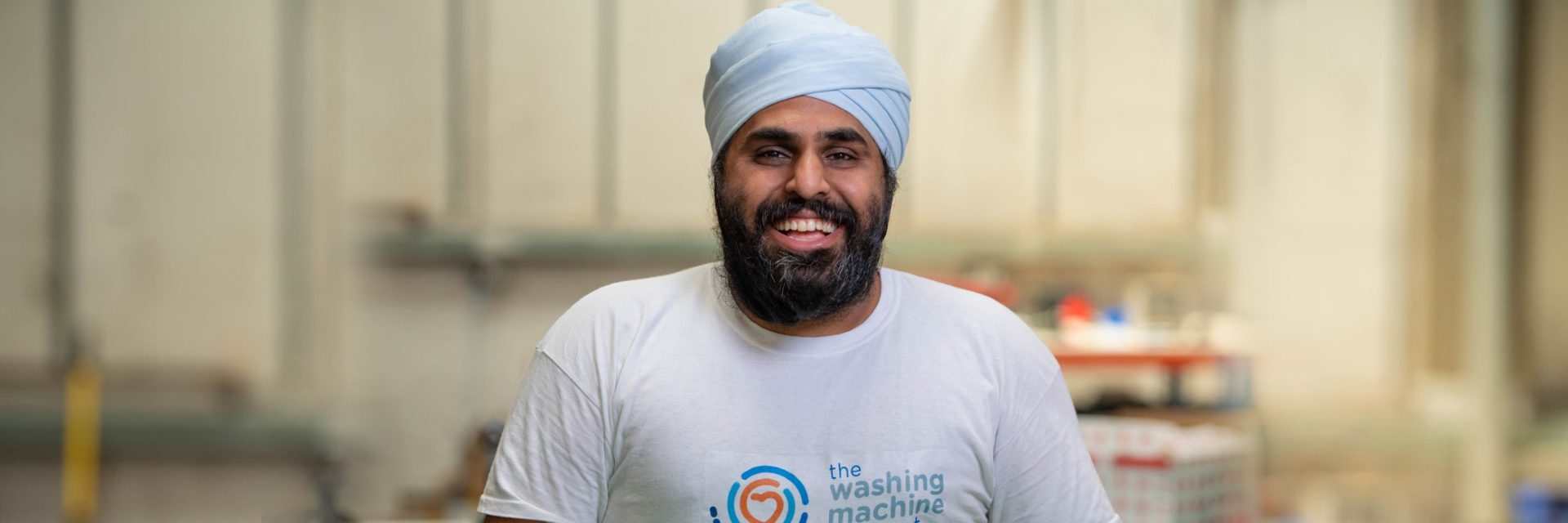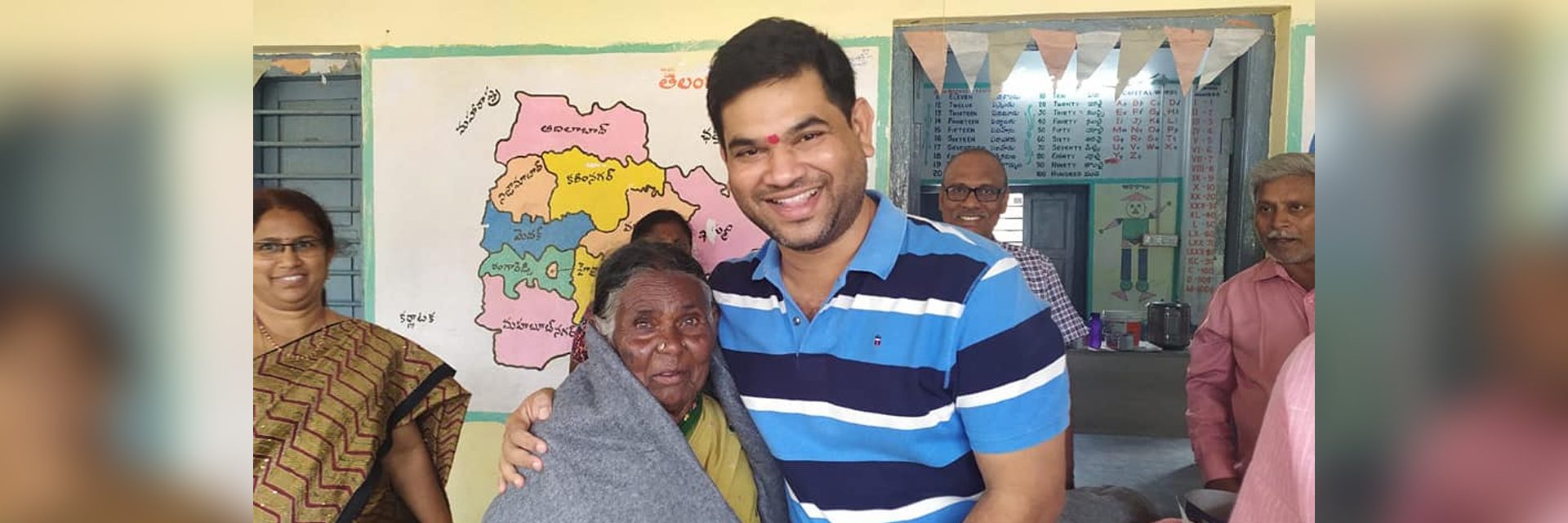(February 14, 2022) The visual language of accessories on the buzzing streets of New York in the 2000s left a lasting impression on Gautam Malik. Seeing them as an extension of one’s personal style, he understood the huge market for it. Cut to 2015, the 44-year-old took a leaf out of that book, and turned into a social entrepreneur to start Jaggery Bags, with a twist. Helping the environment breathe, the social entrepreneur decided to turn old car seat belts into eco-friendly bags. “People were recycling plastic waste, but when I stumbled upon old and discarded car seat belts, I realised the potential because of their sturdiness,” Gautam shares with Global Indian in an exclusive. His startup has today recycled 9,546 metres of car seat belts, and 5,986 meters of cargo belts from landfills in Delhi/NCR.
The passion project has now taken on a global entity with customers in India, US, Australia, Japan, Italy, France and Switzerland. “When we started, sustainability wasn’t the buzzword but soon the idea started resonating with the environment-friendly. We are creating products that help change the perception of waste,” adds the TedTalk speaker. The Gurugram-based startup is a change-maker, and has already been accepted to the World Economic Forum’s Catalyst 2030 for being a prominent part of the modern-day online community of impact makers.

Gautam Malik with his eco-friendly bags
Dreaming big for the planet
Born in 1977 to professor parents, Gautam was drawn to the idea of the American dream as a young lad. However, before the fructification of his dream, he found his calling in architecture and enrolled at the University of Pune (architecture and planning) to learn the tricks of the trade. But things took a turn when the social entrepreneur stumbled upon sustainable living during a short internship at Auroville. “I attribute much of what I am doing now to that experience. For the first time, I came across a new system of existence,” recalls Gautam. Calling it a “eureka” moment, he was fascinated by the concept of co-creating a common green philosophy that was sustainable.
Thinking sustainability
His first tryst with sustainability left him contemplating, but he dropped the idea after realising it wasn’t the modus operandi for Indians in the 90s. Instead, he turned his energy to his American dream. He enrolled at Memphis College of Art (communication design). He then discovered a passion for film and video, and in 2005, he joined University at Buffalo in media studies. “Those years were very liberating and enterprising. However, I often found myself asking, ‘What’s my purpose in life?’ I wasn’t satisfied with where I was,” adds the social entrepreneur.
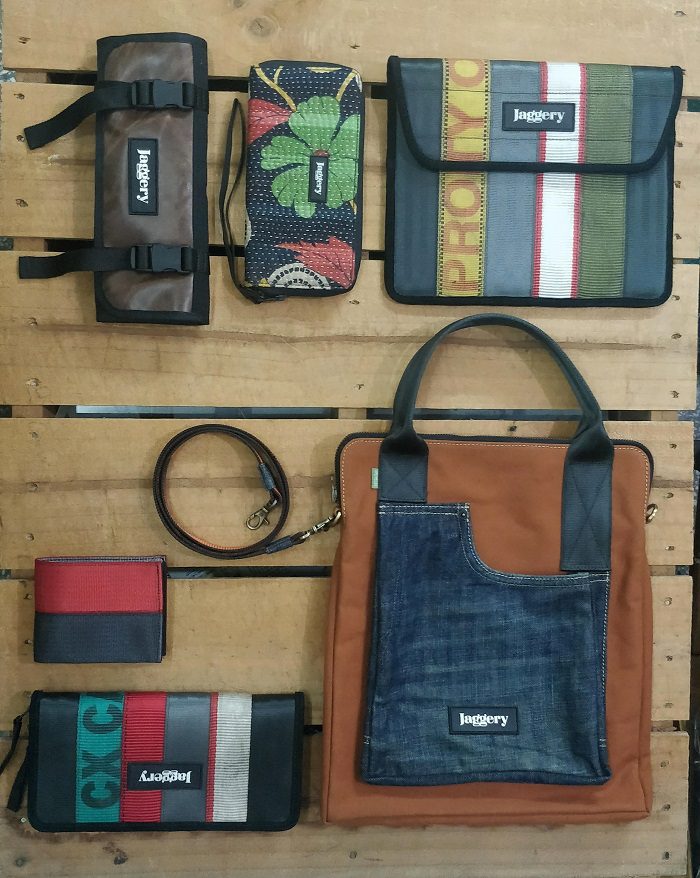
Products by Jaggery Bags
While a sense of purpose kept gnawing at him, he worked as an interface designer, and creative director in New York for several years before returning to India in 2010. “The American dream was old and passe, and NRIs were returning to India,” explains the social entrepreneur who started Suitcase 27, and later joined Jabong where he stumbled upon sustainability reports which helped him identify the huge gap in the market. “I started researching millennials’ buying habits and the green audience. It took me back to my NYC days where accessories were an extension of a personal style. A Swiss brand, Freitag, caught my eye,” recalls the social entrepreneur whose interest in upcycling grew after seeing Freitag reuse tarpaulin waste for bags.
“The strong need for a company that worked on the same ethos but in an Indian context,” was what he set out to do. Jaggery Bags was born in 2015 after quitting Jabong. “My family was shocked with my decision. It took me three to six months to convince them,” says Gautam, who co-founded the company with his wife Bhawna Dandona, whom he met in Pune during college. They married in 2004. His mother Usha Malik is a former professor at Delhi University.

Gautam Malik with his wife Bhawna Dandona
Researching the dream
The social entrepreneur’s recce across Delhi led him to Mayapuri where he found old sturdy seat belts. “If a car seat belt can hold the weight of a person, it is a strong raw material for a bag. Also, it wasn’t a material explored before,” says Gautam. The first batch of Jaggery Bags was circulated among friends and family. Garnering interest, and a market for eco-friendly bags, Gautam pushed the pedal on production.
The early days were “tough,” and it took them two to three years to find a footing in India. “It was after my TedTalk in 2019 that the floodgates opened, and we garnered international interest,” says Gautam, who also added cargo belts in 2018. Currently, Jaggery Bags works with canvas tents, parachutes, automobile seat belts, and inflatable castles. They make pouches, laptop bags, satchel bags and bagpacks which are priced between Rs 1500 and Rs 8000. “Raw materials are sorted, washed, and sun-dried before turning them into products,” adds Gautam.
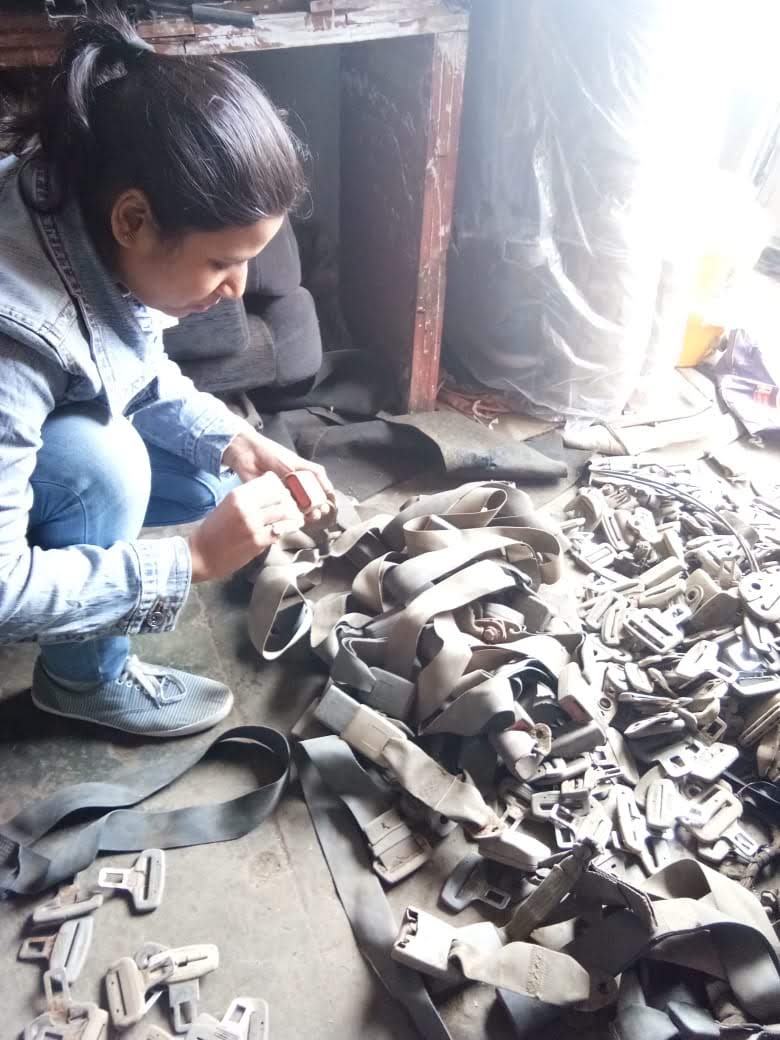
Sourcing car belts from Mayapuri
On its quirky name, he adds, “Like jaggery is a healthy substitute for sugar, we want to provide a healthy substitute for bags. A brand that’s synonymous with organic, healthy, and environment friendly.” The sustainable startup has now spread its wings in Italy, Japan, Switzerland and France with exporting. “We soon realised that the startup had the masala for a global entity, and the grit to create jobs for the marginalised,” says the social entrepreneur.

Gautam Malik at Sankalp Forum
The future is sustainable, thanks to Malik’s idea. “We are scaling up with a focus on marketing and social media as a business. As a social entrepreneur, I want to collaborate with like-minded people,” adds Gautam, a film and music aficionado. When not thinking ecologically, his two daughters are his go-to – reading Good Night Stories for Rebel Girls or just absorbing their positivity. “I want them grow up with a sense of freedom and stand up for themselves,” Gautam concludes.
- Follow Gautam Malik on Linkedin
Also Read: Samir Lakhani: Saving lives in developing countries through soap recycling
